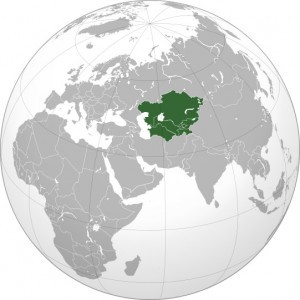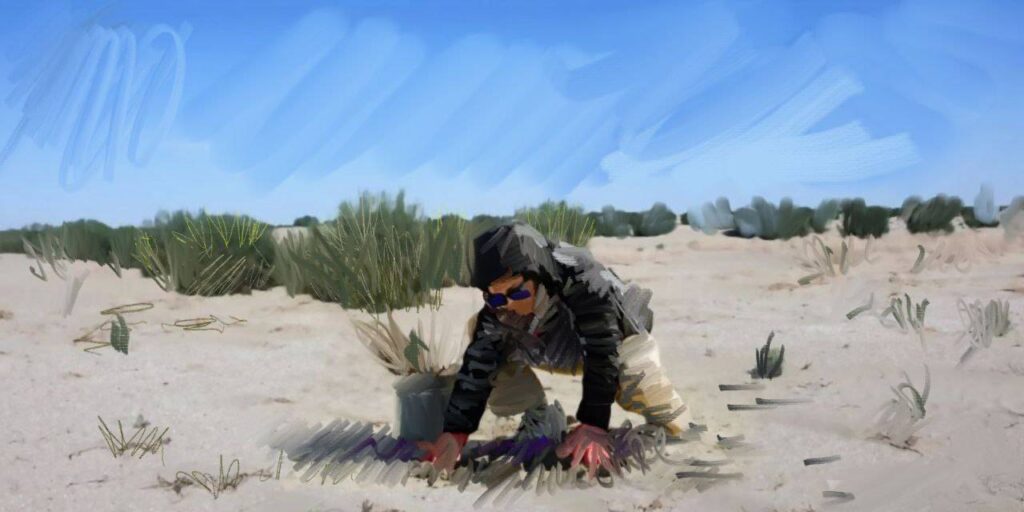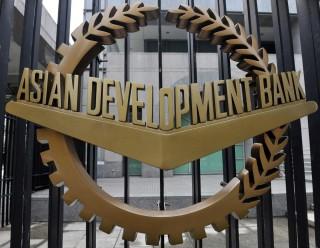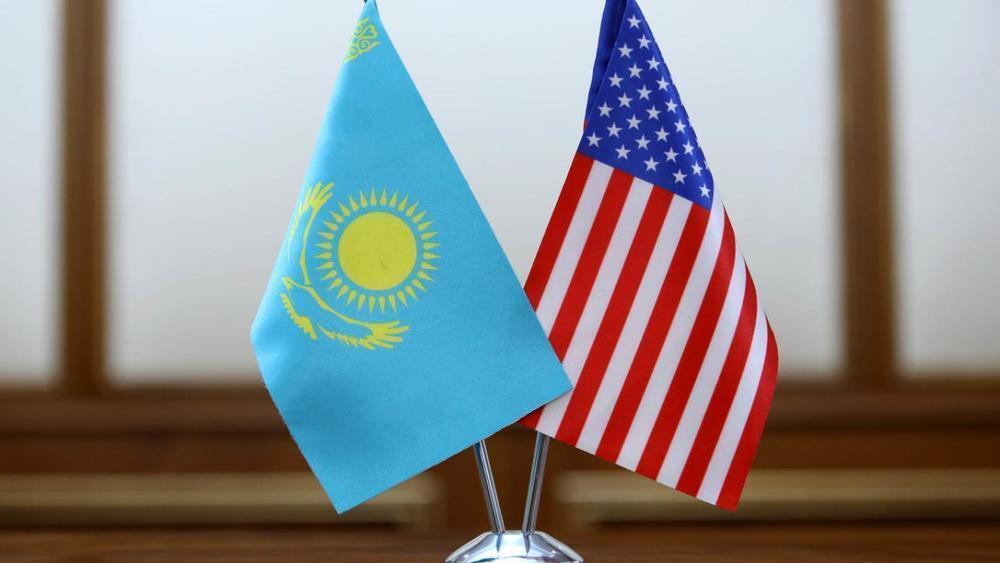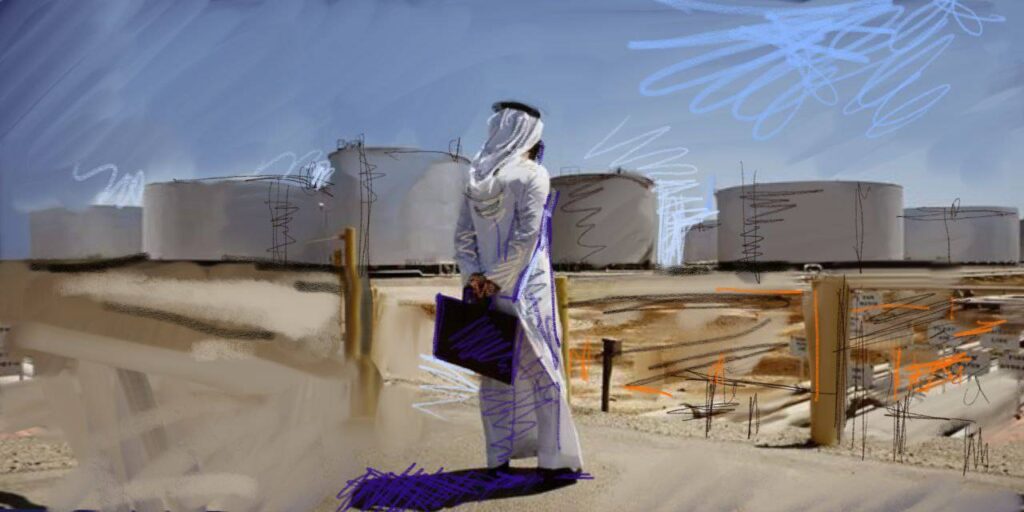BISHKEK (TCA) — The Times of Central Asia presents to its readers Stratfor’s Global Intelligence, a weekly review of the most important events that happened in the world — from Europe to Middle East to Russia to Central Asia to Afghanistan to China and the Americas.
The Week That Was
Twin Cease-fires in Syria and Ukraine
Just as Russia and the United States began implementing a cease-fire in Syria, like clockwork, a unilateral cease-fire was imposed in eastern Ukraine by pro-Russia separatists. This is not a spontaneous and pervasive embrace of peace, but rather the pieces falling in place to a long-developing Russian strategy with the West. Russia is trying to position itself as the primary mediator that can deliver results, both on the battlefield and at the negotiating table. And with the Obama presidency soon concluding and an EU vote on sanctions approaching early next year, Moscow feels that now is the time to put some extra energy into its negotiations in hopes of easing sanctions pressure and extracting strategic concessions with the United States and Europe on issues such as Ukraine.
But both cease-fires are already off to a shaky start. Russia knows that it is going to be next to impossible for the United States to realistically isolate jihadist groups like Jabhat Fatah-al Sham on the Syrian battlefield. Many rebels do not trust Syrian, Iranian and Russian intentions and are not going to outright sever ties with some of the most potent fighters in the broader rebel coalition. Moreover, Saudi Arabia and Qatar are already deeply unnerved by a U.S.-Russian agreement that falls in Iran’s favor, and so will reinforce their own rebel proxies in spite of the cease-fire effort. The array of constraints means we should expect this cease-fire effort to pave the way to a substantive discussion on Syria’s political transition. Russia will boost its role as a manager of Mideast affairs while blaming the United States for its failure, but a dialogue will continue nonetheless as Washington tries to keep Russian obstructions in Syria to a minimum.
In Ukraine, meanwhile, there is some incremental progress but another likely stalemate around the corner. We have seen cease-fire efforts before, and even moves by Russia to shift its heavy weaponry behind the frontlines in line with the Minsk peace plans. Russia may take further steps to show it can bring some resolution to the Ukrainian conflict in exchange for sanctions relief, but Moscow has also been explicit in its expectation that the Europeans (particularly France and Germany) as well as the United States will get Kiev to make political concessions, such as amending the constitution and recognizing elections in the separatist territories. So far, Kiev is digging its heels in and cease-fire violations continue, boding ill for the sustainability of this latest effort toward de-escalation.
Pushback Against Turkey in Northern Syria and Iraq
Turkey is forging ahead in its fight against Kurdish People’s Protection Units (YPG) in Syria while broadcasting its plans to Europe and the United States to build housing and other infrastructure in a safe zone in northern Syria to contain refugees. Turkey would have liked to have some endorsement from an international body, like the United Nations or NATO, to legitimize these moves, but given the misgivings the Europeans have expressed over Turkey’s military push in Syria, Ankara is not going to get a seal of approval and so will proceed unilaterally with the plan. The Turkish-Russian relationship remains both cautious and tense: Russia says it has the go-ahead from Turkey to commence offshore construction on the TurkStream pipeline, but when the Chief of the Russian General Staff Gen. Valery Gerasimov finally met with his Turkish counterpart this week in Ankara (after abruptly cancelling the trip earlier in the month) he told the Turks that their military operations were “illegal.” Moscow is sending a warning to Ankara as they try to keep Turkey within bounds on the battlefield. It will be important to watch for any signs of pushback from Russia, Syria and Iran against Turkey in Syria. Meanwhile, Turkey is already is getting pushback in Iraq, where Ankara wants to use the impending operation in Mosul to stake out a larger position of influence in northern Iraq. The more resistance Turkey gets from politicians in Baghdad, Shiite militias (and by extension, Iran), the more Turkey will rely on its relationship with Massoud Barzani’s Kurdistan Democratic Party (KDP) to sanction its presence in northern Iraq in return for cooperation on the energy front. However, it will only widen intra-Kurdish tensions.
The Problems with an EU Defense Pact
EU members held an informal summit this week in Bratislava, the first time they met without the United Kingdom. The summit was meant to offer the image of a united Europe after the Brexit referendum, and governments discussed ways to improve security and increase cooperation in defense. France, Germany and Italy have all said they back a “defense union,” but even common interests on defense carry serious complications at the national level. It makes practical sense for EU members to pool resources, especially following years of spending cuts in defense. Core EU members are also anxious to create a more EU-centric defense pact now that the United Kingdom is retreating from the union. But military integration still touches on key issues related to national sovereignty, which will generate opposition among member states. But Central and Eastern Europeans are not thrilled with the direction of these defense plans. Since they have to worry more about Russia, they prioritize the security guarantees they get from the United States through NATO. The Baltic countries, which are wary of potential Russian aggression, have already expressed concern about the new EU defense structures overlapping or even competing with NATO.
China Takes Another Leap in Space
This week China’s launched the Tiangong-2, its second space lab, as it prepares to further its capabilities in manned spaceflight and other manned space activities. Tiangong-2’s mission will also improve China’s capabilities in areas like space medicine, remote docking, long-term habitat and life support, and communications to support its broader goal of launching a large modular space station similar to the International Space Station in the 2020s. With the International Space Station’s mission scheduled to end in 2024 and the Russians potentially pulling out even earlier, China is hoping that it can build a coalition around its own space station plans while also furthering its own capabilities in space. A key point of disagreement between the United States, the main backer of the International Space Station, and China is NASA’s exclusion policy on working with Chinese space researchers in a bilateral fashion. Nevertheless as access to space increases and competition rises, major space-faring nations will not only compete in military fields but also other aspects of space exploration.
Japan Wades Deeper into the South China Sea
Japan has gradually and cautiously expanded its involvement in the South China Sea, much to China’s annoyance. This week, Japan took another big step in pledging to expand joint training operations with the United States and hold bilateral and multilateral exercises with other regional navies in the South China Sea. How China responds will depend on factors beyond the South China Sea. One option for China would be to impose an Air Defense Identification Zone (ADIZ) over all or part of the South China Sea, though an ADIZ over the entire region would likely end up reinforcing cooperation between Japan, the United States and others to constrain Chinese activities. Other options for China include delaying or curbing cooperation with Japan in other spheres, such as a prospective trilateral China-Japan-South Korea leaders summit, set to take place later this year. China could also escalate tensions with Japan in the East China Sea. However, in every scenario, China would only reinforce the security arrangements in the region that it is trying to confront. Thus, China may seek more of an ameliorative tack, such as proposing joint fishing in the East China Sea, in an effort to limit Japanese engagement in the South China Sea in return for economic concessions.
Half-Empty Reassurances on TPP?
Lots of reassurances are being made by President Barack Obama’s administration that Tran-Pacific Partnership (TPP) will remain in its original form and is not subject to renegotiation. Following a meeting of ambassadors and other trade representatives at the home of U.S. Ambassador to Japan Caroline Kennedy this week, Japan’s TPP minister, speaking on behalf of the 12 signatories, said they would not renegotiate the pact. There has been speculation that removing some of the TPP’s more controversial measures would make U.S. Congressional approval feasible, but the deal is unlikely to be ratified or even discussed in Congress before Nov. 8 presidential election. Even then, the political controversy surrounding the deal makes it unlikely to be passed in a U.S. lame duck Congressional session. Despite reassurances, TPP signatories, who have already undergone politically costly domestic reforms to facilitate the deal’s accession, are set for disappointment as the United States takes its time in coming up with other compensatory measures to make the deal palatable enough to the American public.
In Libya, Hifter Follows the Egyptian Script
There were some major moves in Libya last week. On Sept. 11, the Libyan National Army (LNA) under Gen. Khalifa Hifter seized control of four major oil export terminals in central Libya and then promoted himself to Field Marshall. The LNA is nominally aligned with the rival government in Libya’s east and hopes to use the fields to drive a deal with the rival government in the west that will cement Hifter’s position in the command structure of Libya’s future unity government. The most likely deal that Hifter is trying to bargain for is a military council similar to Supreme Council of Armed Forces in Egypt, a country already backing Hifter significantly and likely helping script out his next moves. To seize the ports, Hifter was aided by roughly 2,000 fighters from the Sudanese rebel group the Justice and Equality Movement, or JEM. JEM’s involvement came at the behest of the Egyptian government, but could in the future complicate the relations between Egypt and Sudan.
Full Articles
South Korea Ups the Ante
For North Korea, a nuclear weapons program is no longer a distant goal but a present reality. After years spent developing viable nuclear and missiles programs, Pyongyang is unlikely to trade them away in negotiations any time soon. Instead it will continue to cultivate its nuclear capabilities, seeking security through a credible nuclear deterrent. At the same time, regional and global powers are working to adapt their military strategies to accommodate North Korea’s newfound nuclear abilities. The issue is driving anti-ballistic missile defense development, reinforcing the U.S. military’s rebalance toward the Pacific and causing Japan to reconsider weapons systems it previously eschewed. Perhaps most important, North Korea’s investment in nuclear weaponry has prompted South Korea to adopt an increasingly pre-emptive and aggressive force posture and policy, fostering an atmosphere of instability on the Korean Peninsula and raising the likelihood of conflict.
The Limits to Austria’s Euroskepticism
Austria is at a political crossroads. For the first time since World War II, none of the country’s main political parties reached the second round of the presidential election. Instead, Norbert Hofer, a candidate from the right-wing Freedom Party of Austria (FPO), and an independent, Alexander van der Bellen, are neck and neck heading into a rerun of the runoff vote, set to take place Dec. 4. (The first runoff, held in May, was recalled when a court found irregularities in the way votes were tallied; the rerun, originally scheduled for October, has already been postponed once over concerns of faulty mail-in ballots.) Despite the fact that presidents serve a largely ceremonial function in the Austrian government, they have the power to dissolve the legislature and to call early parliamentary elections, something Hofer has said he might do if elected. In addition, as president, Hofer or van der Bellen will be able to veto legislation, which could make policymaking difficult for the current government, which is a coalition of center-right and center-left forces.
Chad: France’s Overlooked African Citadel
More than three years have passed since the French military intervened in Mali to root out radical Islamists who had seized the northern half of the country. Operation Serval, which began in January 2013 as militants marched on the central Malian city of Mopti, marked a turning point in French President Francois Hollande’s administration — in no small part by thawing the leader’s chilly relationship with his Chadian counterpart, Idriss Deby.
But the operation also underscored Chad’s enduring importance to France, regardless of the figures leading the two countries. For more than a century, the African nation has served as a garrison protecting Paris’ sway in the region — influence that France will be loath to give up. Given the advantages a friendship with France can offer Chad as well, little is likely to shake the tight bonds connecting the two in the years ahead.
Taking Another Stab at Saudization
Undaunted by the middling results of past attempts, Saudi Arabia has undertaken a new campaign in its decadeslong project to replace expatriate workers with Saudis, a process known as “Saudization.” The latest initiative arrived at its first benchmark during the week of Sept. 5, when the country’s telecom retail sector — comprising anything related to the sale or maintenance of cellphones — reached its deadline for achieving “complete Saudization.” Many shops did not fare well during the six-month period allotted for the process; some business owners shuttered their operations, while others were fined. As it investigates how successful the sector was in implementing the new regulations in the coming months, the Saudi Ministry of Labor and Social Development will likely uncover many more cases of noncompliance, despite hefty penalties (up to two years’ imprisonment and a $365,000 fine). After all, Saudi employees are far costlier than their foreign peers, in terms of salary as well as efficiency, and past Saudization efforts have been largely unsuccessful.
The Dawn of the Armored Fighting Vehicle
The Battle of Flers-Courcelette was part of the ongoing Battle of the Somme in France and the first time that modern armored fighting vehicles were deployed in combat. Yet despite triumphant claims in the British press of a new weapon that would turn the tide of war by breaking the impermeable German lines, the tank’s initial deployment was largely inauspicious. Those first tanks were rushed into service and woefully underpowered for the terrain they would encounter while saddled with the weight of armor. Riddled with developmental problems and manned by crews with almost no training, of the 49 original Mark I tanks deployed to France 100 years ago, 36 set off from the British line of departure Sept. 15. Only 27 made it as far as German forward positions, and a meager six trundled as far as the secondary and tertiary objectives. Mechanical failure plagued the new invention, but the concept had been proved, and successive generations of tanks and tank tactics would turn a “mobile pillbox” into a battle-winning asset.
The Week Ahead
Russian Elections are a Litmus Test for Putin
Russia is holding its first national elections Sept. 18 since the 2011-2012 elections that sparked mass protests across the country. Though the economic and political climates are worse this time, the Kremlin is trying to avoid blatant rigging in the elections to avoid triggering a bigger wave of social unrest in the wake of the vote. The Kremlin is instead using shifts in electoral policies and backroom deals with rival political parties to try to get a result it can live with. The government is also putting an emphasis on positive economic news while threatening pollsters to keep quiet. Following the elections, minor protests will break out, but the Kremlin has put safeguards in place to prevent mass or organized protests that would threaten the government. The electoral results are a litmus test for Russian President Vladimir Putin and his administration with a presidential election 18 months away.
More Barrels in the Oil Market
The cliche “lower for longer” in oil markets will continue to ring true. This week, not only did the U.S. Energy Information Administration’s new short term oil market outlook adjust U.S. oil production for the fourth quarter upward (by 130,000 barrels per day) for the second month in a row, but events in Libya and Nigeria could point to more supplies coming back online in those countries. In Libya, Gen. Khalifa Hifter’s forces seized oil ports, leading to a deal with the National Oil Company (NOC) and a removal of force majeure at three key oil terminals. The return of these supplies could double Libyan exports in time, though the NOC needs cash to make repairs on some of the infrastructure and the compromise between the rival groups remains fragile. In Nigeria, ExxonMobil offered to load cargo of Qua Iboe in October, following announcements in the last three weeks that Shell lifted its force majeure on Bonny Light oil exports and that the Forcados pipeline would resume service this month. Collectively these fields could increase Nigeria’s production by around 700,000 bpd. These supplies, while subject to additional disruptions, will continue to add weight to global oil prices, which are already factoring in the return of 150,000 bpd of production in northern Iraq because of the export agreement on Kirkuk supplies last month and the start up of the massive Kashagan field in Kazakhstan that could reach 360,000 bpd by next summer. As OPEC members prepare for their informal meeting in Algiers later in September, they will be facing new challenges as production from outside the bloc’s core members looks to be rising.
Federal Reserve and Bank of Japan Watch
The Bank of Japan and the Federal Reserve will be holding monetary policy meetings Sept. 20-21. In the United States, the Fed once again is captivating markets by deciding whether or not it will raise interest rates for the first time since December. Right now, markets are pricing in roughly a 20 percent change of a rates hike. Should the Fed move next week, those most at risk are major emerging-market countries like Malaysia. The Bank of Japan has spent the last two months conducting a review of its monetary policy and quantitative and qualitative easing program. Depending on the outcome of that study, the Bank of Japan may ease further and adjust the maturity dates of its government bond purchases, but any signs on how the bank plans to readjust its monetary policy over the next year and shift to a more sustainable policy will be important. The Bank of Japan is expected to issue more guidance at the meeting.
Britain Works Off the Swiss Template for Brexit
On Sept. 20, EU Commission Jean-Claude Juncker will be in Switzerland to resume negotiations on how to move forward after a Swiss referendum asked the government to limit the arrival of EU workers, which goes against Switzerland’s agreements with the European Union. The negotiations will be followed closely by the United Kingdom, which in the coming months will also have to preserve its access to the EU market while also restricting the arrival of EU workers. Keeping an eye on London, Brussels will take a hard line on Bern to send the message that limiting the free movement of workers also means losing access to the common market.
Another Opportunity for Russia to Lobby Europe
On Sept. 21, German Vice Chancellor and Economy Minister Sigmar Gabriel will be in Russia to discuss bilateral economic relations with officials in Moscow, including Putin. Gabriel has repeatedly spoken in favor of lifting EU sanctions on Russia, a position that is so far rejected by Chancellor Angela Merkel. The European Union will discuss its position on Russia in late October, and a preparatory meeting will take place on Sept. 20. EU member states are divided on whether sanctions should be kept, and some will probably insist on a progressive lifting when they expire in January 2017. With a shaky cease-fire in Ukraine underway, it will be crucial if Germany, in particular, shows any sign of bending its position on sanctions in return for further progress on the security front.
Next Steps in the Venezuelan Referendum
Venezuela’s National Electoral Council (CNE) will likely announce its final conditions for the next phase of the recall referendum against President Nicolas Maduro during the coming week. The CNE was originally scheduled to make the announcement on Sept. 16, but delayed it citing threats of opposition violence during nationwide protests slated for that day. During the past week, the CNE was reportedly still considering under what exact conditions the next phase would occur. One of the sticking points is whether to mandate that the opposition should collect the signatures of 20 percent of the electorate in each of Venezuela’s states or whether the CNE should mandate the collection of 20 percent of the signatures of the national electorate. The former would complicate the logistics of collecting the signatures and verifying the validity of the signatures. This favors the government. The Maduro administration will likely favor any institutional delays to a referendum past Jan. 10, 2017, because a referendum held prior to that date would result in a new election, which the ruling party could realistically lose.
The government is also likely trying to delay momentum toward a referendum by enticing the opposition into a dialogue. The government reportedly offered the opposition coalition Democratic Unity Roundtable the offer of early elections to be held in 2018 in exchange for dropping its request for an immediate referendum. The bargain is allegedly being backed by international mediators, such as former Spanish Prime Minister Jose Luis Rodriguez Zapatero and the Catholic Church. But such a bargain would require the approval of numerous political figures from both sides of Venezuela’s polarized political system. Any agreement would be difficult to pull off in coming months, which makes a referendum in 2017 still the most likely scenario.
Former President Faces Indictment in Brazil
Brazilian federal Judge Sergio Moro will decide on Sept. 19 whether or not to indict former President Luiz Inacio Lula da Silva. Charges were announced against da Silva on Sept. 14 due to alleged involvement in crimes related to the Car Wash investigation, a criminal probe of illicit activities related to a kickback scheme at state owned energy company Petroleo Brasileiro or Petrobras. Da Silva is accused of receiving illicit payments that the construction firm OAS obtained from overcharging the state company.
If Moro decides to take on the case, there is the possibility of the former president’s loyalists protesting in the weeks to come. But a potential indictment of da Silva will potentially have larger consequences. Da Silva was among the more popular figures in the opposition Workers’ Party. Nominating the former leader as the party’s presidential candidate in 2018 could have made the party more competitive in the upcoming vote. If the case against da Silva proceeds, it could threaten his ability to register as a presidential candidate and consequently complicate the party’s attempt to regain the presidency in two years. Such a scenario would possibly leave the more conservative, pro-business Social Democracy Party of Brazil and the Democratic Movement Party of Brazil with a clearer shot at the presidency in 2018.
Elections in Jordan
Elections for Jordan’s lower house will take place on Sept. 20. It is highly unlikely that these elections will result in political change for Jordan. After all, aside from the lower house, almost every other governmental position in Jordan is appointed. But a change to the country’s electoral law has allowed for and encouraged the participation of the fractured Jordanian Muslim Brotherhood, a group that historically has had strong popular appeal. This popular appeal threatens the government, which is partly why the government is pursuing a balanced strategy of limiting the group’s participation, even while allowing it, so as not to upset conservative Jordanians. The polls will be a test as well of the desire for political change in Jordan’s shifting and swiftly growing population. Votes in droves for Muslim Brotherhood candidates will be viewed as a warning to the government that popular demand for a shake-up of the status quo will require attention.
